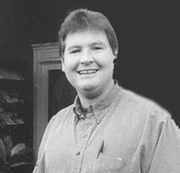
An application for political asylum in Sweden allegedly made almost 30 years ago by Gerry McGeough from Tyrone is due to be used as evidence against him in a Belfast court.
McGeough was the first Republican to be charged with so-called “historical crimes” since the 1998 Good Friday Agreement.
According to documents released to Britain by Sweden, Gerry McGeough applied for asylum in 1983 when he was an on-the-run IRA member living in the Swedish city of Malmo. His lawyers will argue that the material should be excluded by the court.
Political asylum applications are generally regarded as confidential and it is understood that it will be the first time such documents will be used against a republican.
Over the years, dozens of IRA Volunteers applied for asylum in various European countries. A legal precedent could be set if the material in McGeough’s case is deemed admissible with other historical asylum applications then being used to charge republicans.
Gerry McGeough is charged with IRA membership in 1975 and a 1981 attack against a member of the British Army. His trial, which began in March, was due to reopen this week before he was hospitalised for heart problems. Fellow Tyrone man Vincent McAnespie is also facing trial in relation to the same incident.
His lawyer, Peter Corrigan, said: “I understand Republicans applying for asylum in Sweden at that time were advised by their lawyers that all material was confidential and they wouldn’t be prosecuted on the basis of information provided.
“Indeed, the current position of the British government is that, in the public interest, asylum claims made by foreigners arriving in Britain are confidential. That is clearly stated on official forms given to asylum seekers. Gerry McGeough should have exactly the same rights.”
Last year, the then British Immigration Minister, Phil Woolas, told the House of Commons: Information received from asylum seekers is treated in confidence and details of their claims are not disclosed to the authorities of the country they fear being returned to.
![[Irish Republican News]](https://republican-news.org/graphics/title_gifs/rn.gif)
![[Irish Republican News]](https://republican-news.org/graphics/title_gifs/harp.gif)

